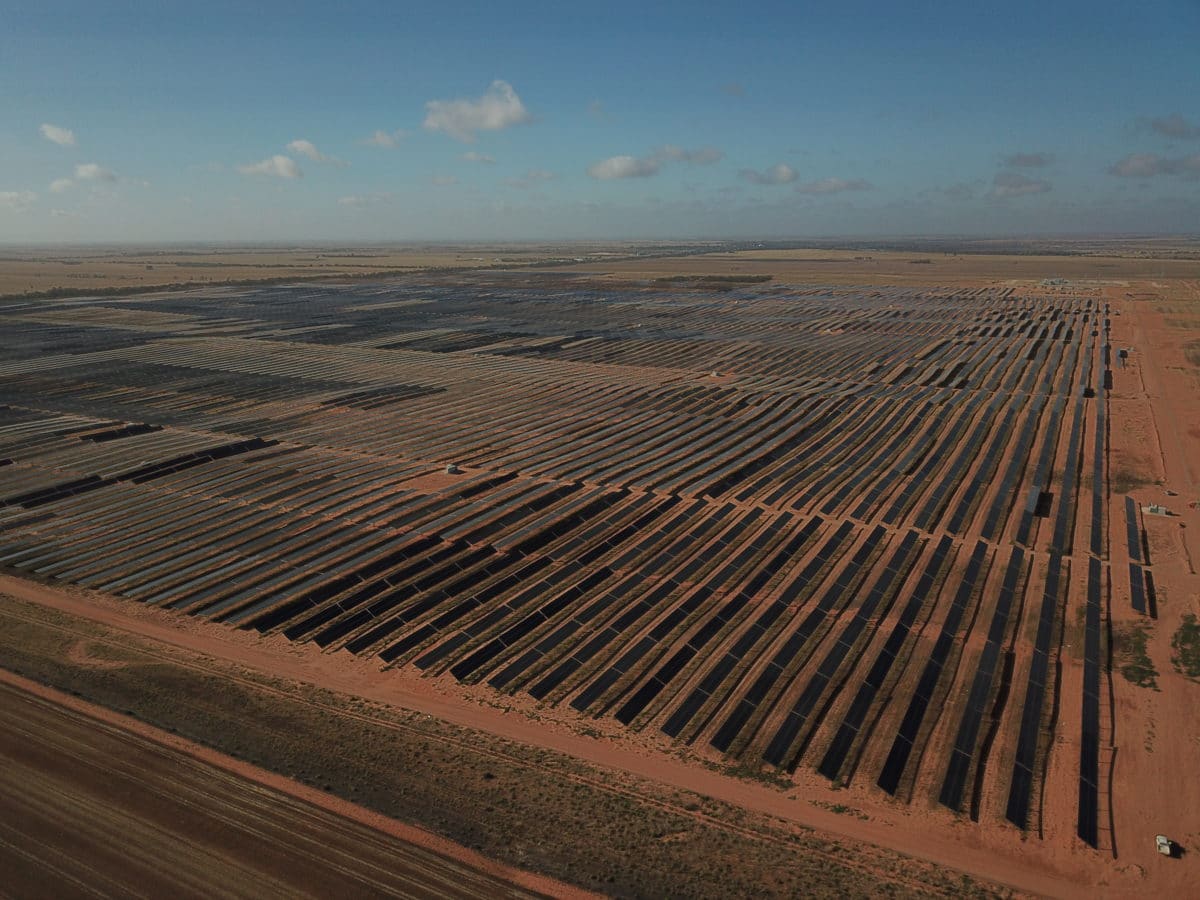It’s Federal election night 2022, and the Greens have just won the balance of power in both the Upper House and the Senate on the basis of leader Adam Bandt’s promise to push Australia towards generating 700% of its current energy production from renewables. Feasible?
“At the next election Labor is very unlikely to win majority government in its own right,” said Bandt on the weekend, “but with the Greens in balance of power we can turf the Liberals out and take the action voters demand on the climate crisis and economic inequality”.
Getting started on his election campaign in Queensland, Bandt proposed using a massive green energy surplus “to electrify the rest of our economy, grow energy intensive manufacturing sectors like green steel and aluminium and power new export industries in green hydrogen”.
The stretch goal is borrowed from Darren Miller, CEO of the Australian Renewable Energy Agency (ARENA), who confirmed during last week’s Senate Estimates that he stands by an earlier assertion that Australia could in fact generate 700% of its energy needs from renewables.
In an interview this month with pv magazine Australia, Miller said, “Obviously the limiting factor for Australia is that our energy demand in and of itself is not that great. We might be 1% of the world’s supply and demand, but we could maybe supply 5% of the world’s energy.”
Power grab!
Like Bandt (or is it Bandt like Miller?), Miller says that the real opportunity comes in upgrading iron ore for green steel production, whether green steel is made in Australia or in China, “we can still use a lot of our energy to upgrade those ores, which then applies to other minerals like bauxite to alumina, and zinc, nickel and manganese”.
Miller told pv magazine, he thinks Australia should aim for hundreds of megawatts of solar, to produce hydrogen and electricity for industry, and upgrade ores. “We could respond to that export opportunity and I think we can do it at the world’s lowest cost, to become a long-term winner in that space.”
While Miller was channeling trials of technology, and demonstration projects across the renewable-energy spectrum, Bandt was channelling public alarm at the devastation caused by severe weather events — fire and flood — over the past two years, to shift the dial on voter sentiment.
“There’s no time to waste,” he said. “We are in a climate emergency that threatens to catastrophically overwhelm our society and economy.”
Part of his weekend pitch to Queenslanders, who at the last Federal election formed a voter barricade to protect coal-mining jobs against the perceived threat posed by Labor, was the promise of hundreds of thousands of well-paid, long-term jobs in renewables-related sectors, that will enable “workers in fossil fuel industries in Queensland and elsewhere to transition, and farmers to be paid to farm carbon and protect the land”.
Should a Labor/Greens coalition become a reality, Bandt’s requirements of the Labor Party, will include:
- A $20 billion Grid Transformation Fund starting with implementation of AEMO’s Integrated System Plan
- A major public investment in renewable energy generation and storage in Renewable Energy Zones
- A clean energy and green materials government procurement program and a renewable export strategy
- An accelerated electrification plan for transport, buildings and industry
In advance of the Greens’ launch of a new “policy vision document”, which may provide a timeframe for achieving the Greens’ 700% renewables target, Bandt simply said, “To unlock this revolution, the government will need to lead the way with public investment.”
This content is protected by copyright and may not be reused. If you want to cooperate with us and would like to reuse some of our content, please contact: editors@pv-magazine.com.









1 comment
By submitting this form you agree to pv magazine using your data for the purposes of publishing your comment.
Your personal data will only be disclosed or otherwise transmitted to third parties for the purposes of spam filtering or if this is necessary for technical maintenance of the website. Any other transfer to third parties will not take place unless this is justified on the basis of applicable data protection regulations or if pv magazine is legally obliged to do so.
You may revoke this consent at any time with effect for the future, in which case your personal data will be deleted immediately. Otherwise, your data will be deleted if pv magazine has processed your request or the purpose of data storage is fulfilled.
Further information on data privacy can be found in our Data Protection Policy.